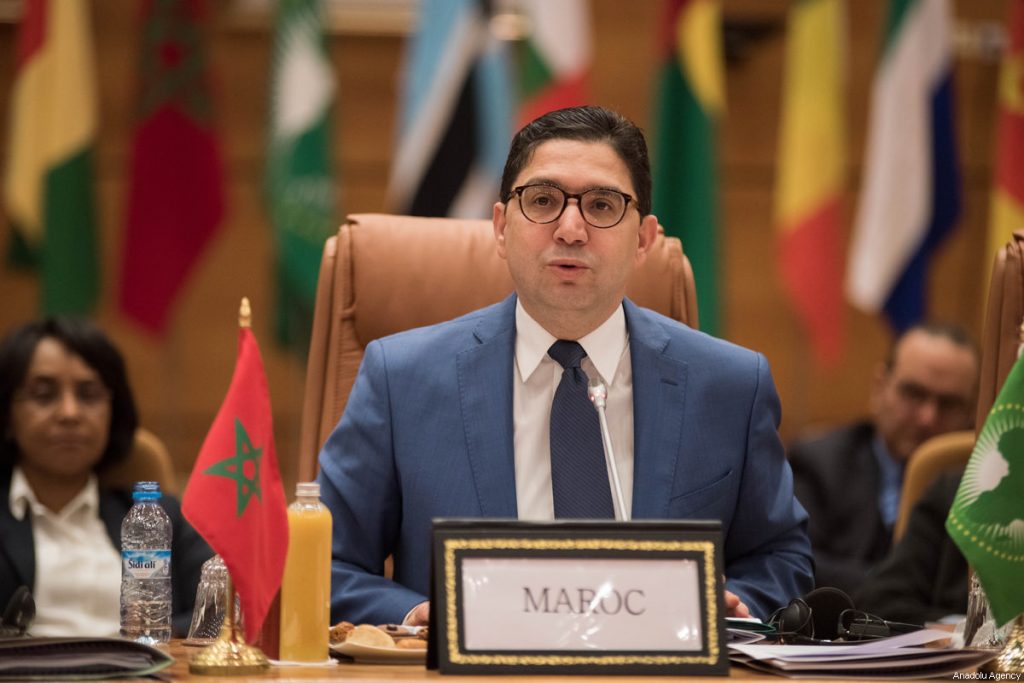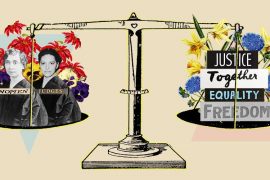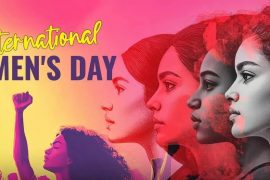Women must be equal partners in peacebuilding and conflict prevention efforts, Morocco’s Minister of Foreign Affairs Nasser Bourita said Tuesday.
Morocco’s Ambassador to Vietnam Jamale Chouaibi delivered Bourita’s remarks at the Ministerial Conference on the Role of Women in the Consolidation of Peace in Hanoi on Tuesday. Vietnam is hosting the event from December 7-9 in collaboration with UN Women.
In his address, Bourita emphasized that “Morocco is fully convinced that women and girls are not only victims of war, but that they are also powerful builders of peace.”
Women’s efforts “in conflict prevention and the preservation of peace are critical, but remain poorly recognized, underfunded, and poorly integrated into formal peace processes,” he continued.
“Increased violence, mass displacement, and humanitarian disasters, as well as the COVID-19 pandemic, have deleterious consequences for women and girls,” he added.
Such consequences impede “progress towards peace, security, reconciliation, and stability for all.”
He offered mechanisms to improve women’s participation in peacebuilding and conflict prevention, calling for the recognition of women as equal partners in all efforts to prevent conflict, respond to humanitarian crises, and promote peace and democracy.
Morocco’s steps towards gender equality
Bourita went on to underline the reforms Morocco has adopted to achieve gender equality under King Mohammed VI.
Since 1999, “Morocco has embarked on a major project of legal and institutional reform for the implementation of the provisions of the Constitution, which is a base for the [UN] Sustainable Development Goals,” Bourita said.
During King Mohammed VI’s first year on the throne, as many as 300,000 women organized demonstrations in Rabat and Casablanca on March 12, 2000. They called for a reform of the family code, a ban on polygamy, and the introduction of civil divorce law.
In the coming years, the King worked to improve women’s rights and political participation. Notably, the legislative elections of September 2002 ushered in 35 women parliamentarians.
Two years later, in 2004, King Mohammed VI enacted a new Family Code, Moudawana, that met some of the demands of women’s rights activists in Morocco.
Morocco’s Family Code
Moudawana concerns issues related to marriage, polygamy, divorce, inheritance, and child custody. The 2004 reform secured several important rights for women such as the right to self-guardianship, the right to divorce, and the right to child custody.
Moudawana grants men and women equal rights within the family. Husbands and wives have equivalent rights in house management, family planning, children’s upbringing, and legal cohabitation.
The family code also requires the free consent of both men and women looking to enter marriage, and women no longer need permission from a male guardian to marry.
The reformed Moudawana also restricts polygamy. A husband can only marry a second wife with approval from a judge and needs detailed documentation of their finances, signed consent from his first wife, and proof that both wives will receive equal treatment.
Additionally, the legal minimum age for marriage for both men and women is 18, after previously standing at 15 years for women. Special cases of marriage under the minimum age now require permission from a judge. However, child marriage is still prevalent in Morocco, with courts approving 25,920 child marriage requests in 2019.
Despite the reforms, civil society organizations in Morocco still report disparities between the family code’s legislation and practice. In particular, women in rural areas are often not aware of the rights they are guaranteed under the Moudawana and remain subjected to patriarchal values.
In 2011, Morocco introduced a new Constitution, which prohibited gender-based discrimination and established institutions for achieving gender equality.
UN Resolution 1325
The Ministerial Conference on the Role of Women in Peacebuilding in Hanoi coincides with the 20th anniversary of the UN Security Council’s adoption of Resolution 1325 on women, peace, and security.
Resolution 1325 outlined the links between gender equality and international stability. Yet 20 years on, women and girls continue to face exclusion from humanitarian decision-making and peacebuilding, Bourita said.
Morocco hopes to change the status quo. In collaboration with UN Women, the Moroccan government is in the process of drawing up a National Action Plan on Women, Peace, and Security, in the application of Resolution 1325.
Morocco World News





Comments are closed.